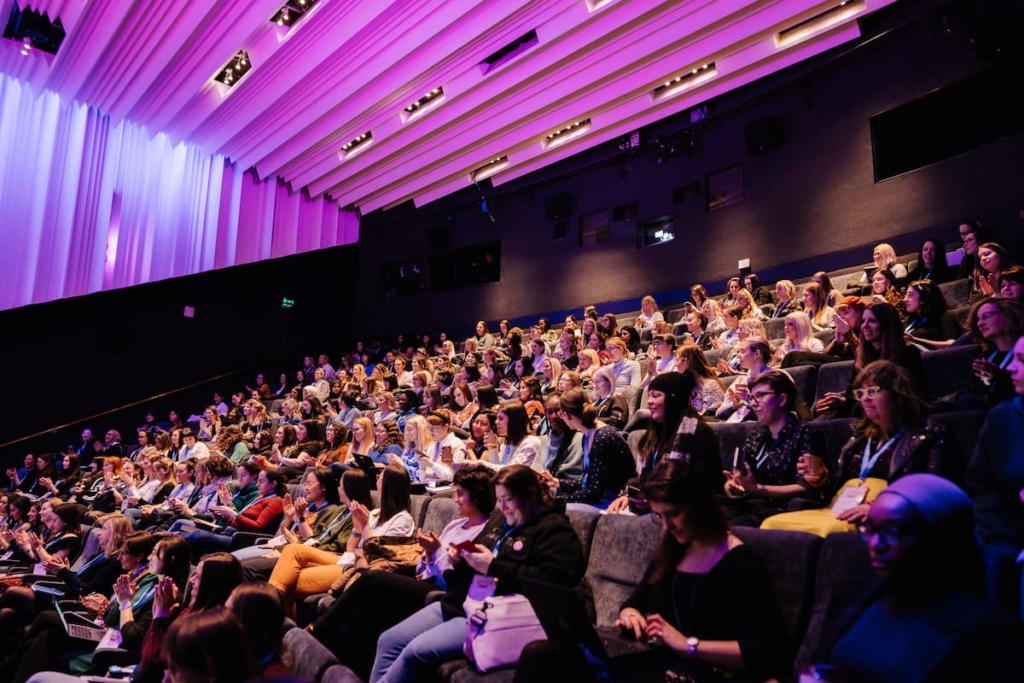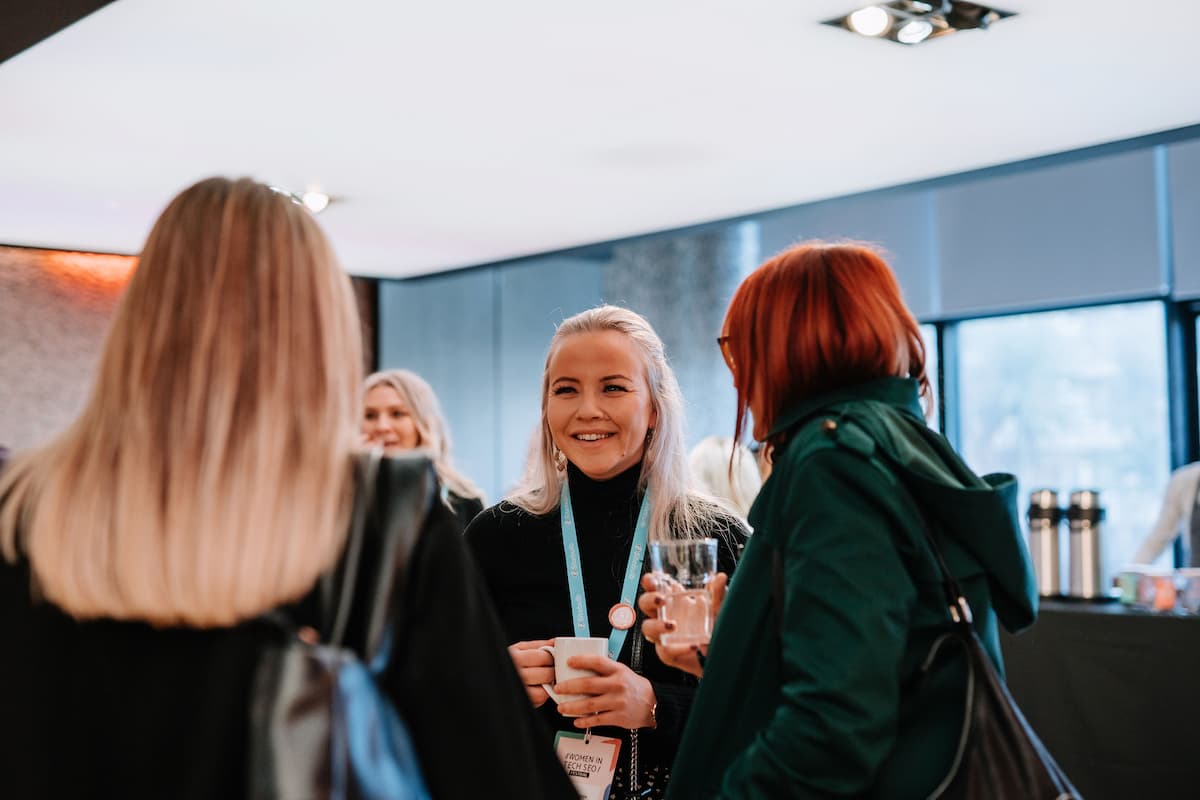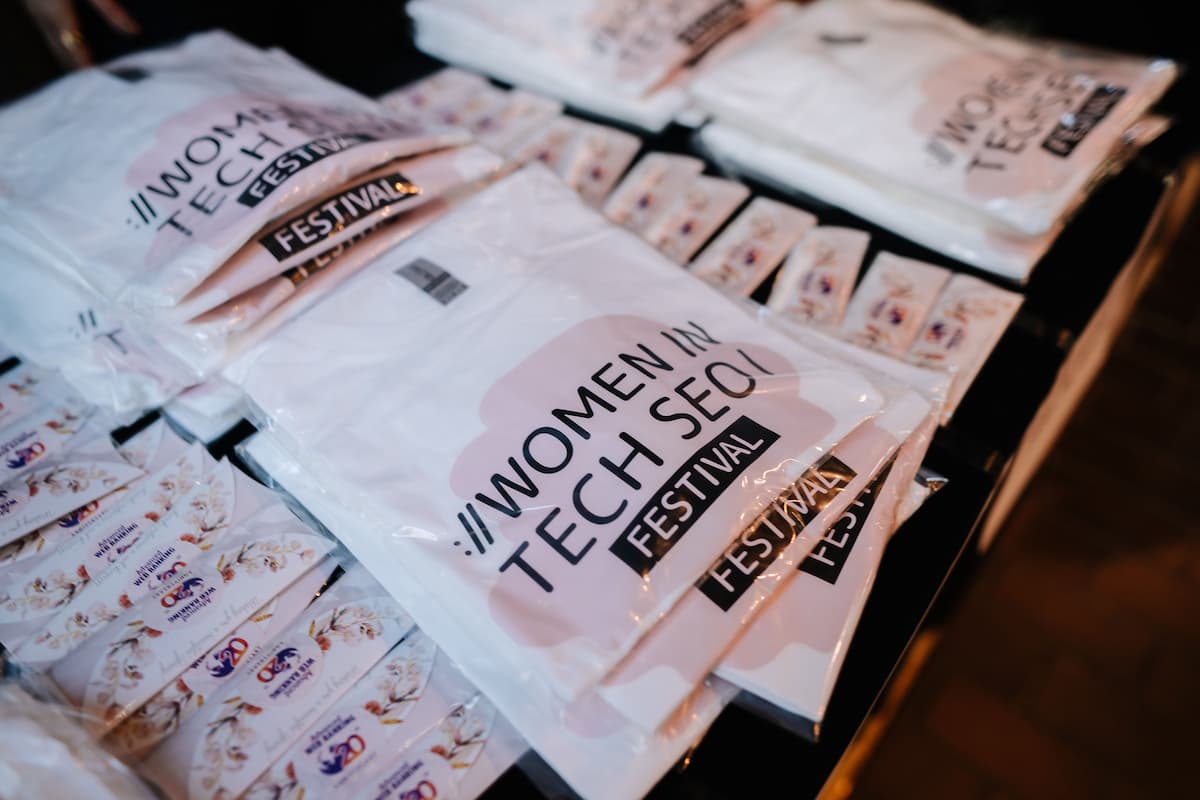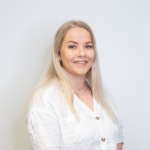
On February 25th, our Head of SEO Annika attended the 3rd Women in Tech SEO Festival (#WTSFest) at the Barbican Centre in London. She was one of almost 300 attendees, all eager to learn from key industry figures and meet other ambitious female SEOs.
Demonstrating the inclusivity of the Women in Tech SEO community, the day featured 10 talks from speakers with different backgrounds, ethnicities, and ages — and the quality of the expertise on offer highlighted the knowledge-sharing benefits of equalised opportunities.
Here are Annika’s thoughts on the day:
“On the morning of WTSFest, many of the attendees felt uneasy about heading to the Barbican Centre. The crisis in Ukraine had just begun, and the developing turmoil muted the typical excitement of attending a conference. Was it right to continue?
What we soon realised, though, is that devastating events don’t make it trivial or inappropriate to band together in communities. The opposite is true, in fact. When the world feels particularly awful, it’s even more important for us to surround ourselves with people who can empower and support us, whether professionally or personally.
Areej Abuali (@Areej Abuali), the founder of the Women in Tech SEO community, helps female SEOs do exactly that. Everything about this community and this conference priotises accessibility and inclusivity. The manually-written subtitles in the slides showed this, as did the decision to donate 10% of the WTSFest recording sales to the Ukraine fund.
And I’m keenly grateful to have been involved. It was a great privilege to listen to talks from amazing professionals and meet like-minded women with innovative SEO methods. That’s really what the Women in Tech SEO community is all about: sharing knowledge and experiences so we can lift one another up instead of competing.

Photo credit: The Chamberlins
Session 1: Analyse
The first session of the day, titled ‘Analyse’, featured talks focused on practical steps for building SEO strategies.
Kicking things off was Lidia Infante (@LidiaInfanteM), Senior International SEO Manager at BigCommerce, with her talk on the importance of SEO gap analysis. She shared a process-driven method for building an SEO roadmap through reverse-engineering competitor tactics.
There are three main pillars of SEO: technical, content, and links. If you’re falling behind your competitors in one of those areas, that’s where you need to place your focus. You should also arrange specific benchmarking for each area to help you find new opportunities (this will help with getting internal buy-in on new actions and prompting vital budget increases).
Next up was Rejoice Ojiaku (Rejoice Ojiaku), SEO Manager at Incubeta NMPi and Co-Founder of B-DigitalUK. Her fun and engaging talk focused on mapping out the buyer journey and gave practical advice on choosing content types for different stages. Rejoice noted that blogs and whitepapers are great for top-of-the-funnel users (and might not even need CTAs) while bottom-of-the-funnel users need content encouraging them to act.
This talk offered a great reminder that SEO strategies prioritising user acquisition can miss the need to create carefully-targeted content to push those users ahead. If you get the targeting wrong (presenting transactional content to someone just looking for information, for instance), you can lose a potential customer for good.
The final talk in this session came from Crystal Carter (@CrystalontheWeb), Senior Digital Strategist at Optix Solutions. Her talk focused on the often-overlooked tactic of optimising content on profile pages. For businesses that rely heavily on professional credentials for key roles (lawyers, accountants, doctors, etc.), this can be extremely impactful.
Not only is it relatively easy to produce and implement profile content, but it’s also possible for a profile page to become one of a site’s biggest traffic drivers (Crystal’s case study proves this). If you’re in a relevant industry, why wouldn’t you want a quick and easy way to earn more traffic and bolster your E-A-T metrics? You can even turn the pages into powerful lead converters using custom CTAs.
Session 2: Advance
After a refreshing coffee break (and a stroll around the Barbican Centre’s beautiful indoor garden), we proceeded to the second session of the day, titled ‘Advance’.
The first talk of this session was from Roxana Stingu (@RoxanaStingu), Head of Search & SEO at Alamy. Her talk (cleverly named “The Internet for SEOs”) explained in detail how the internet actually works from a developer’s perspective, and reminded us of the importance of educating ourselves about web development (as we are quick to educate others about SEO).
We know there’s a lot happening under the hood when users open their browsers, but how often do we actually look at requests and rendering in our day-to-day work? Paying attention to these factors is hugely valuable for high-level tech audits, whether it involves parsing a faulty Javascript function or trying to optimise loading speed.
Regardless, we need to know how to communicate with web developers if we want to get our recommendations implemented. Roxana made the great point that we’re often talking about the same issues using different terms, leading to needless confusion. If we put more effort into learning “technical” language, we can fast-track the completion of SEO tickets.
The second talk of ‘Advance’ was from Aleyda Solis (@Aleyda), SEO Consultant & Founder at Orainti. She sadly couldn’t attend in person, but her talk covering practical advice on how to build an engaging SEO report was still extremely insightful and useful for an audience quite familiar with the challenges of producing SEO reports.
Aleyda explained how you can cater to internal stakeholders or external clients by covering the right metrics with minimal fluff. In short, less is more. The key is to analyse the right metrics properly. Metrics like DR can be valuable largely because they help guide your strategy, so anything that doesn’t contribute to your post-report actions isn’t worth mentioning.
Additionally, we need to get away from the tendency to focus only on the positives. It isn’t easy to admit that results aren’t ideal, but every decline presents an opportunity to make some much-needed changes. If you can accompany them with clearly-communicated solutions, it can actually prove advantageous to mention negative metrics.

Photo credit: The Chamberlins
Session 3: Innovate
After filling our bellies with some lovely lunch, the third session, titled ‘Innovate’, was kicked off by Paige Hobart (@PaigeHobart), Head of SEO at ROAST. Her talk about data-led decision-making for website builds covered the importance of IA mapping when building (or rebuilding) a site. She walked us through two interesting case studies showing that removing or consolidating pages (hundreds or even thousands of them) can result in exponential traffic growth.
Deploying this tactic shouldn’t be taken lightly, of course: it’s vital to get through proper research and data gathering before you make any risky decisions. In the end, it boils down to fitting every page-level keyword into the site’s hierarchy, and that’s far from easy — but if you can pick out the most valuable pages (and those that need to be there for legal reasons, such as Terms and Conditions pages), you can find a way to do it.
Next up we had Lazarina Stoy (@lazarinastoy), Technical SEO Analyst at Skale, talking about machine learning in SEO. Opening with words from Ruth Everett and Britney Muller, Lazarina noted that there’s no need to fear machine learning as it’s possible to use it without being an expert (even stating “I have no idea what I’m doing”, though that’s obviously far from the truth!).
She explained that much groundwork has already been done, leading to the creation of convenient tools and guides. Furthermore, you can — and indeed should — seek to experiment with suggested machine learning tactics (even with no confidence that you’ll succeed) if the following conditions are met:
- The task isn’t mission-critical.
- You don’t need consistent results.
- The process doesn’t need to be explained or even relayed to stakeholders.
The final talk in this session was from Miracle Inameti-Archibong (@mira_inam), Organic Performance Lead at Moneysupermarket. Miracle’s talk focused on the importance of accessibility. SEOs use a lot of technical jargon, but it’s often possible to simplify things — and it’s highly important that we try. Indeed, she opened with some powerful accessibility stats: not only is the UK alone home to millions of disabled people, but it’s also true that the 2021 WebAIM Million Report detected accessibility errors in 97.4% of homepages.
Most of us know the importance of image ALT tags, but it can be frustratingly tedious to write hundreds of them (or even thousands if you’re working on an ecommerce or listing site). Thankfully, Miracle shared a quick way to overcome this: use Python! There are various code libraries that can easily generate decent ALT text with minimal manual input.
Remember that not all images should follow the same rules when it comes to ALT text, though. As Miracle pointed out, any alt text for functional images (CTA graphics saying things like “Print now”) should describe the actions instead of the images. Alt text for purely-decorative images can be left as “Null” (but not empty). Finally, alt text for explanatory images should seek to briefly convey the information they’re intended to communicate.

Photo credit: The Chamberlins
Session 4: Empower
The final session of the day, titled ‘Empower’, moved on from SEO-focused talks to more inspirational and empowering talks focused on wellness.
First up was Lou Chiu (@lwychiu) from Lou Chiu Coaching and Consultancy. Lou is a coach, trainer, and consultant, and her talk focused on the thorny matter of internal conflict. It isn’t easy to make sense of the mixed messages we get from society, or to parse our complex beliefs, thoughts, feelings, and actions. We’re all multi-faceted, with our habits and even identities fluctuating on a daily basis — but we can take steps to understand ourselves better.
The more keenly we become aware of our different selves, the better we can understand why those selves are actually essential. When you’re frustrated in a meeting, for instance, you should think about why. What part of you does that frustration represent? Getting in touch with your full self can help your personal life and your professional life.
The final talk of the day was from Shannon McGuirk (@ShannonMcGuirk_), Client Services & Delivery Director at Aira. Her talk explained that accepting and understanding our weaknesses can actually empower us to forge new strengths. We all have our kryptonites, things that make us feel lesser and loom large in the constant self-analysis that’s particularly common for women. One such kryptonite could be high-pressure social engagement, as it often yields anxiety.
Shannon noted that looking closely at our responses, changing our perspectives, allows us to find positives in them. A situation that heightens and exposes a weakness (you can call this a “trigger”) may also highlight strengths that you don’t notice because you’re thinking so much about the problem — or perhaps the weakness (such as getting nervous in a group setting) actually endears you to others by humanising you. It may even not seem a weakness to others at all: that framing may simply be something you’ve imagined.
Overall, then, it’s extremely useful to apply the patient analysis of SEO to our introspection. If we try to look at ourselves from different perspectives, we may just discover that we’re far more impressive and accomplished than we previously dared to imagine!
After that last talk, it was time to leave, but I took so much enthusiasm and encouragement with me — so before I wrap up, I’d like to massively thank Areej and all the brilliant women who attended for inspiring me and thousands of others every day. The industry wouldn’t be the same without you.”
